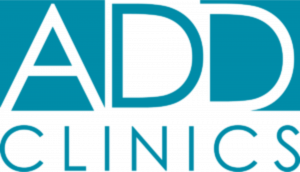
Mississippi Physician Highlights Link Between THC Use and Cognitive Impairment in Individuals with ADD
THC, the primary psychoactive compound in marijuana, has been shown in multiple studies to affect memory, attention span, executive function, and motivation. These effects are compounded in individuals with ADD, whose baseline neurological function already involves impaired regulation of focus, impulse control, and information processing.
“The neurochemical effects of THC directly oppose the treatment goals for ADD,” said Dr. Stanford Owen, owner of ADD Clinics in Gulfport. “Long-term or even intermittent use can hinder progress, interfere with therapeutic strategies, and mask symptom patterns that need to be addressed clinically.”
Dopaminergic Disruption in the Prefrontal Cortex
Attention Deficit Disorder is associated with lower levels of dopamine activity in the prefrontal cortex—a region responsible for organizing thoughts, regulating behavior, and filtering distractions. THC disrupts dopamine signaling, leading to a temporary spike followed by a depletion. For individuals with ADD, this can worsen symptoms such as mental fog, impulsivity, and difficulty sustaining attention.
Imaging studies show that THC reduces activity in key areas responsible for decision-making, problem-solving, and sustained concentration. In individuals with ADD, these areas are already underactive or inefficient. Regular exposure to THC may further compromise cognitive resilience, making it more difficult to manage symptoms without escalating medical interventions.
Impacts on Working Memory and Learning Retention
THC has a documented effect on short-term memory and working memory—functions that are already impaired in many individuals with ADD. Learning retention suffers when the brain cannot adequately encode or recall information. This is particularly problematic for adolescents and young adults, whose academic or occupational performance may already be under pressure.
In clinical settings, patients using THC frequently report difficulty recalling conversations, appointments, instructions, or recently completed tasks. These impairments are often misattributed solely to ADD, when they are, in part, pharmacologically induced or amplified by cannabis exposure.
Emotional Regulation and Executive Dysfunction
Individuals with ADD often struggle with emotional impulsivity and mood regulation. THC use introduces variability in mood, motivation, and emotional processing, which can disrupt therapy progress and behavioral modification techniques.
Executive dysfunction—difficulty managing time, setting goals, and following through with responsibilities—is further complicated by the lethargy and motivational decline associated with cannabis use. While some individuals use THC in an attempt to calm anxiety or racing thoughts, the long-term result can be a blunting of affect, reduced task initiation, and difficulty transitioning between activities.
Developmental Risk in Adolescents and Young Adults
The adolescent brain is still developing through the mid-twenties. THC use during this critical period has been linked to structural and functional brain changes, particularly in the hippocampus and prefrontal regions. These changes may reduce cognitive flexibility and emotional stability in later life. THC use has been associated with a much higher incidence of Schizophenia-like symptoms, including paranoia and delusions. Schizophrenia typically presents around age 20 during a growth/pruning brain-growth event.
For young individuals with ADD, whose treatment often involves medication, behavioral strategies, and academic accommodations, cannabis use can interfere with all three. Medication interactions, reduced responsiveness to behavioral cues, and declining academic performance are common concerns among clinicians treating this population.
Masking and Misinterpretation of ADD Symptoms
In some cases, THC use may temporarily mimic calming effects, leading individuals to believe it helps with their symptoms. However, this masking effect can delay proper diagnosis, skew clinical evaluations, and create confusion in treatment planning.
THC’s mood-altering properties may also obscure signs of comorbid conditions such as depression or anxiety—common in individuals with ADD—making it more difficult to implement targeted therapeutic strategies.
Complications with Medication Efficacy
Stimulant medications, often used to treat ADD, rely on precise dosing and timing to regulate neurotransmitter levels. THC can interfere with absorption, metabolism, and central nervous system responses, making these medications less effective or unpredictable in their effect.
This interaction can prompt dosage adjustments that don’t address the root issue—namely, that THC is counteracting the medication’s intended benefits. Over time, this can lead to treatment resistance, reduced compliance, and frustration for both patients and providers.
Clinical Recommendations and Observations
At ADD Clinics in Gulfport, patients are routinely assessed not only for core ADD symptoms but also for environmental and behavioral factors that may affect treatment outcomes. THC use has increasingly emerged as a confounding variable in achieving consistent therapeutic progress.
“In clinical practice, the correlation between THC use and poor treatment outcomes in ADD patients is repeatedly evident,” said Dr. Owen. “Reducing or eliminating cannabis use is often a necessary step toward clearer cognitive function and more effective symptom management.”
Public Health Implications
As cannabis policies continue to evolve across the country, greater awareness of its neurological impacts—particularly in populations with pre-existing cognitive disorders—is essential. Health providers, educators, and families are encouraged to monitor for signs of impaired function and to engage in open discussions about cannabis use and cognitive health.
Morgan Thomas
Rhino Digital, LLC
+1 504-875-5036
email us here
Visit us on social media:
Facebook
Distribution channels: Culture, Society & Lifestyle, Healthcare & Pharmaceuticals Industry, Science
Legal Disclaimer:
EIN Presswire provides this news content "as is" without warranty of any kind. We do not accept any responsibility or liability for the accuracy, content, images, videos, licenses, completeness, legality, or reliability of the information contained in this article. If you have any complaints or copyright issues related to this article, kindly contact the author above.
Submit your press release

